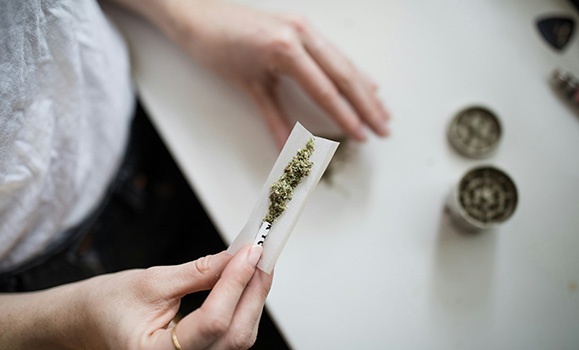The episodes can involve auditory and visual hallucinations, delusion-like thoughts and changes in perception, sometimes leading to distress and self-harm.
They are called psychotic-like experiences, or PLEs, and don't tend to disrupt regular functioning but are estimated to affect��between 17 and 60 per cent of young people at some point in their lives. And while studies show that��not everyone who has PLEs will go onto develop psychosis, those who have them in adolescence are about three to four times more at risk of developing a psychotic disorder.
Research also suggests that cannabis may play a role in the development of psychosis, but little is known about how the drug affects the actual structure and function of the brain, particularly at a young age and for those with PLEs.
Researchers at ������ are trying to better understand that potential relationship with an innovative study that will use magnetic resonance imaging (MRI) techniques to examine the brains of different groups of 15- and 16-year-olds.
Early intervention
, a professor of psychiatry, is recruiting teens in Halifax who use cannabis and those who don't, and those who have PLEs and those who don't.��Dr. Tibbo will use the MRI to determine if THC — or��tetrahydrocannabinol, the main psychoactive ingredient in cannabis — has an effect on the brain white matter and if it is linked to the incidence of PLEs. He is planning to recruit 160 participants, split equally between those who use cannabis and those who don't.
 "Psychotic-like experiences exist in the population, more in the younger ages than in adults. We're trying to determine what the effects of cannabis are in those who have PLEs and don’t, in brain structure, particularly in brain white matter.����
"Psychotic-like experiences exist in the population, more in the younger ages than in adults. We're trying to determine what the effects of cannabis are in those who have PLEs and don’t, in brain structure, particularly in brain white matter.����
"We're recruiting 15- to 16-year-olds because we're all about early intervention. We know that for some people, cannabis use can cause psychosis but even prior to that there are PLEs, so we're trying with the younger age group to examine the link between cannabis use and symptoms along that psychosis spectrum."
The project is also collecting data on the frequency of cannabis use and the potency of THC, which studies in Europe have shown has doubled in some areas over the last decade. That is being seen in North America as well.
Naturally grown cannabis plants typically contain two to three per cent THC, while commercially harvested plants can be as potent as 25 per cent THC.
"The product that our adolescents are getting exposed to today is different than that of 10 to 15 years ago and I think that's a nuance in understanding that people need to be aware of," he says. "It's a big shift."
Supporting informed choices
It's estimated that 21 per cent of 16- to 19-year-olds who consume cannabis do so on a daily basis, according to the 2023 federal��. The rate goes to 23 per cent for people aged 20 to 24.
Heath��D'Alessio, a strategic advisor for the Cannabis and Mental Health Project and a person with lived experience of psychosis related to their cannabis use, says this type of work is key to providing people with evidence-based information about��cannabis.
"Psychosis is not well understood and that lack of public knowledge can make it seem scary, but research that explores the mechanisms and causes of psychosis and psychotic-like experiences is really important for helping promote awareness and understanding to try and dispel the fears, stigma and misunderstandings the general public has about psychosis," they say.
"When it comes to its relationship to cannabis, it's important that people have access to unbiased information and nonjudgmental support so they can make informed choices."
For Dr. Tibbo's study, potential participants are screened in a phone call to make sure they're eligible. If accepted, they then come into the research space and get an MRI, which takes about an hour. They would be paid for their involvement.
Dr. Tibbo hopes the findings provide people with an��understanding of the effects of cannabis on adolescent brain white matter development and the potential causal role of cannabis in psychosis.
"It's a legal substance and it's not going to be made illegal again," he says. "It's not about abstinence. This is more around the idea that you have to be aware of risks and if you're having experiences that are not going the way they should, you probably should stop or see someone."
If interested in participating or finding out more about the study, please email or text��psychosis.research@nshealth.ca���ǰ���902-717-4946.

